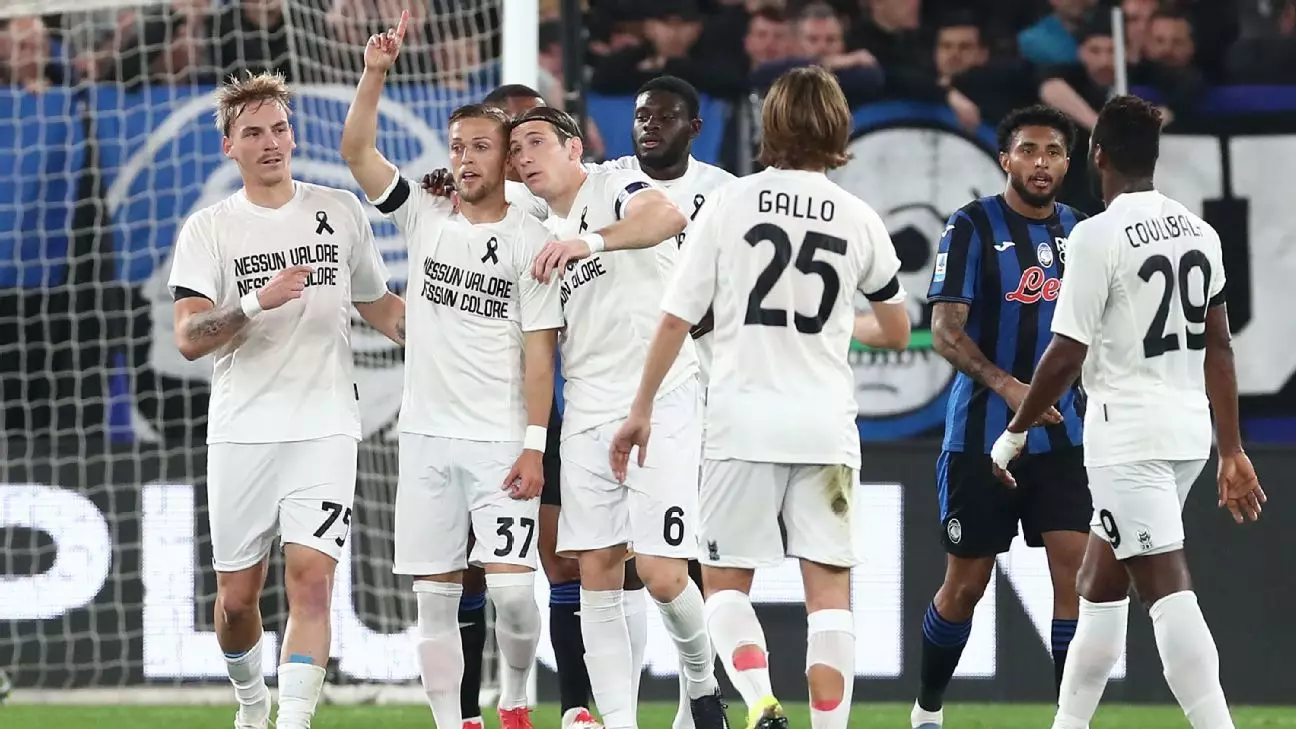In a poignant act of defiance and remembrance, Lecce’s football team took to the field on Sunday adorned in blank white shirts, stripped of logos and colors. This gesture came in response to the Serie A’s controversial decision to move their match against Atalanta to just three days following the untimely passing of their revered physiotherapist, Graziano Fiorita. The decision to re-schedule the game, regardless of the deep sorrow the club was enduring, raised ethical questions about the values at play in professional sports.
Fiorita’s tragic death at the age of 47 left an indelible mark not only on the club but also on the myriad players and fans who knew him. For over 26 years, he dedicated himself to the health and well-being of the players on Lecce’s roster, making his unexpected passing all the more difficult to process. The fact that he died while the team was away on retreat, far from his loved ones, amplified the emotional landscape—adding layers of complexity and anguish to an already painful situation.
The Heart of the Matter: Values vs. Profit
Lecce’s management articulated their frustration eloquently in a statement: the game rightfully should not have occurred under the current circumstances. Their outcry highlighted a significant ongoing issue in professional sports—where the value of human life tragically can take a backseat to the pursuit of revenue. In explicitly demanding a postponement out of respect for their fallen colleague, the club made a bold stand that emphasized the importance of maintaining human dignity even within the unforgiving world of competitive sports.
The phrase “trampled values” echoed loudly across social and sports media, resonating as a distillation of broader societal issues. How often do we witness the prioritization of profit over people? Lecce’s action is not merely about one match; it serves as a rallying cry against a culture that often overlooks the humanity behind the players, coaches, and support staff who contribute to the spectacle of the game.
A Symbol of Solidarity
As the players donned their simplified uniforms, complete with a black ribbon and the powerful message, “no value, no colour,” they transformed the act of playing a match into a symbol of solidarity and mourning. Their choice of an anonymous jersey was more than a protest; it was a way to embody their grief, stripping away the trappings of competition to focus on the loss of a life that mattered deeply to them.
The draw against Atalanta was a mere footnote in the larger narrative of the day, but what transpired off the pitch spoke volumes. Fans were invited to pay their respects to Fiorita, creating a poignant space for collective mourning. This act connected the community, igniting a sense of shared loss and unity that extends far beyond the confines of the football field.
In an era where sports often feel like entertainment devoid of emotional resonance, Lecce’s decision serves as an important reminder. It urges all involved in the world of sports—from players to management to fans—to consciously consider the values they wish to uphold. Are we, in our pursuit of glory and profits, neglecting what truly matters? Lecce’s resolute stand against the backdrop of tragedy compels us to reflect on our own priorities, asserting that human life and dignity should always come first.

